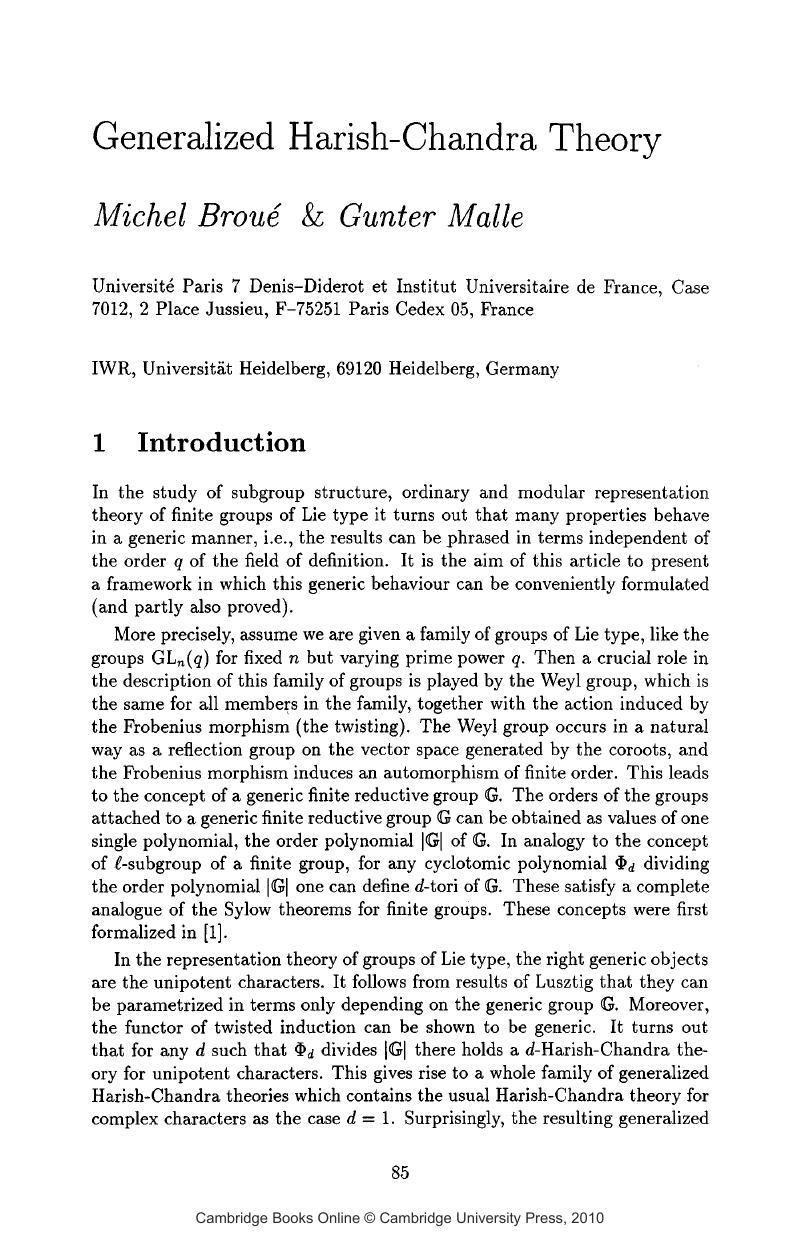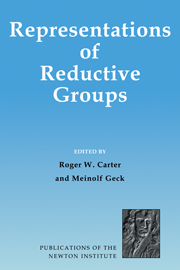Book contents
- Frontmatter
- Contents
- Preface
- Introduction to algebraic groups and Lie algebras
- Weyl groups, affine Weyl groups and reflection groups
- Introduction to abelian and derived categories
- Finite groups of Lie type
- Generalized Harish-Chandra theory
- Introduction to quantum groups
- Introduction to the subgroup structure of algebraic groups
- Introduction to intersection cohomology
- An introduction to the Lusztig Conjecture
- Index
Generalized Harish-Chandra theory
Published online by Cambridge University Press: 15 January 2010
- Frontmatter
- Contents
- Preface
- Introduction to algebraic groups and Lie algebras
- Weyl groups, affine Weyl groups and reflection groups
- Introduction to abelian and derived categories
- Finite groups of Lie type
- Generalized Harish-Chandra theory
- Introduction to quantum groups
- Introduction to the subgroup structure of algebraic groups
- Introduction to intersection cohomology
- An introduction to the Lusztig Conjecture
- Index
Summary

Information
- Type
- Chapter
- Information
- Representations of Reductive Groups , pp. 85 - 104Publisher: Cambridge University PressPrint publication year: 1998
Accessibility standard: Unknown
Why this information is here
This section outlines the accessibility features of this content - including support for screen readers, full keyboard navigation and high-contrast display options. This may not be relevant for you.Accessibility Information
- 2
- Cited by
